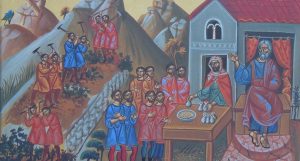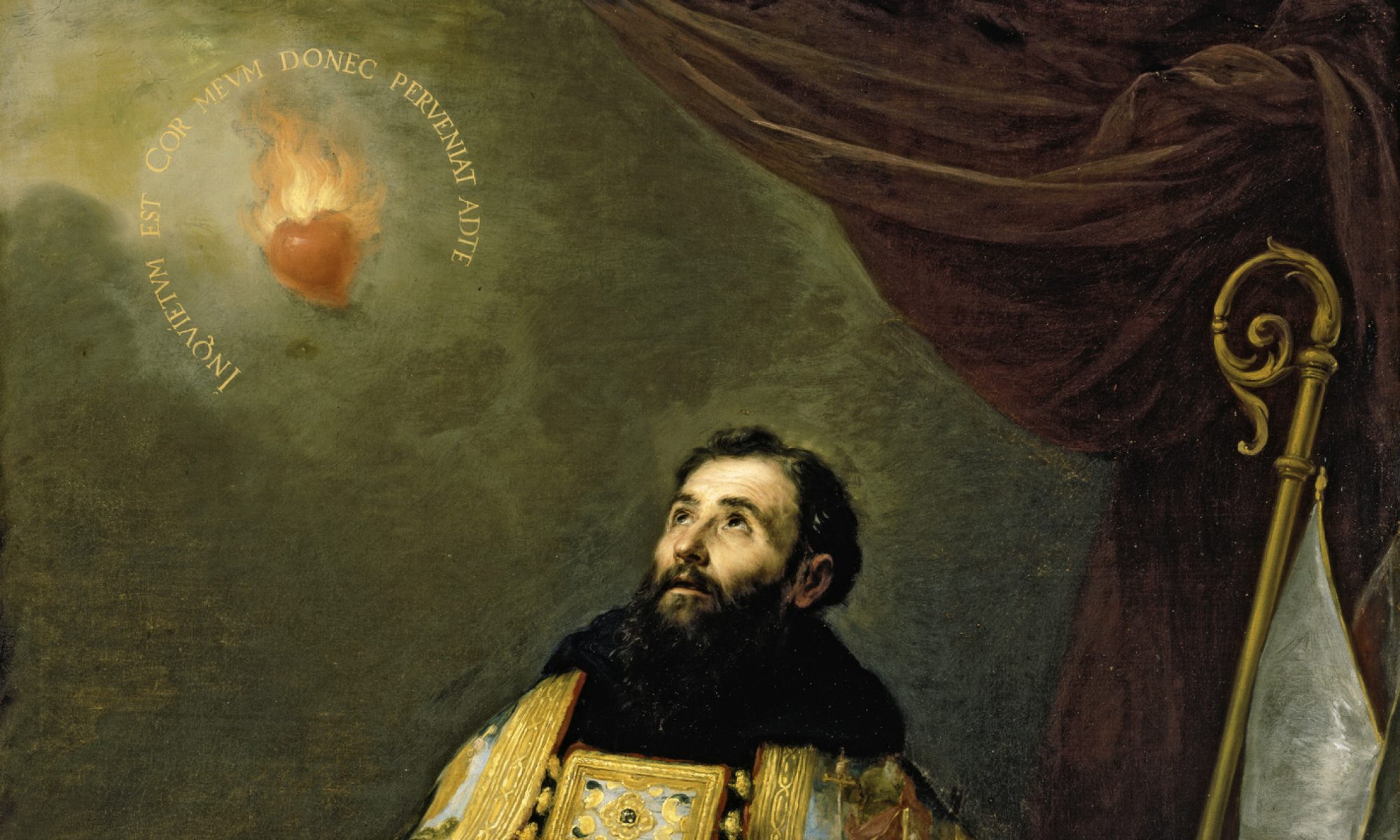Today is Septuagesima Sunday. What is this all about? The Extraordinary Form follows the 1962 calendar which includes a Pre-Lent season called Septuagesima. This word in Latin means “seventieth.” It is both the name of the liturgical season and the name of the Sunday. Septuagesima Sunday marks the beginning of the shortest liturgical season. This season is seventeen days long and includes the three Sundays, Septuagesima (seventieth), Sexagesima (sixtieth), and Quinquagesima (fiftieth) before Ash Wednesday. The Septuagesima season is a period of preparation before Lent. Liturgically, it looks very much like Lent with a tone very penitential. The Gloria and Alleluia are not allowed temporarily, and the priest vests with purple color vestments.
Today’s epistle, taken from the letter of St. Paul to the Corinthians, reminds us that Christian life is just to expose ourselves to rigorous training in order to gain a reward or prize that will last forever, rather than a reward that will not last very long. We need continuous discipline for spiritual progress. We need strong determination to avoid sinful things, denying bodily pleasures, involving too much food and idle time instead of dedicating moments in prayer and contemplation. Opening ourselves to reflect on God’s word involves an action plan to attain our spiritual objectives. Christian development and growth can lead us to eternal happiness. When we discipline ourselves, we are like a victor who refuses to lose.
Following the flow of the parable we heard in today’s gospel from St. Matthew, he is inviting us to manifest our undivided trust and faith to our loving God. I believe that the landowner in the story, who represents the role of God, acts in fairness and equality and He will do anything for us. I remember in the teaching of St. Augustine on divine justice, he uncompromisingly challenges that God’s decision and law must always take priority over human law and practice. St. Augustine wrote, “God commands something which conflicts with the customs or rules of any human society, then it is to be done, even if it has never been done there before…”. (Confession 3.8.15.)
St. Augustine’s teaching is very evident that he left us with a clear understanding that our confidence in God, through His Son Jesus Christ’s proclamation of His Father’s message about the Kingdom of God, is meant to be known and to be lived out as His disciples fully revealed and yet has more to be known, waiting for His definitive and lasting glory. As Jesus has taught the disciples at every point, we, too, are challenged how this kingdom continuously impacts our lives and the way we live.
This parable is an explanation of the Kingdom of God revealing to us the ways which are sometimes hard to understand by our human mind and logic. The parable states in verse 16, “for the last shall be first, and the first shall be last”. Our understanding is that God sees the heart, and He shall reward accordingly. St. Paul clarifies in his writings to the people of Corinth that “without love, even the greatest sacrifice is worthless.” (1 Cor.13:3) Our sufficiency of life depends solely on Christ. Going back to the parable, some laborers complain that others, who did not work as long as they had, were paid an equal amount. In other words, they saw their own labor as worthy of compensation but considered their companions’ labor to be inferior and less worthy of reward. They never understood that the Landowner’s call for them to work in his vineyard is already a reward itself because I believe if they remain idle, doing nothing, they will never get such generous pay. The best realization of Jesus’ statement is simply to address all believers that no matter how long or hard they work during this lifetime, they will receive the same basic reward, that is Eternal Life. The scripture also teaches us that the ultimate reward of eternal life will be given on the basis of our cooperation with God’s grace and our charitable actions towards our neighbor. Christian life is not only a life of prayer and mass, but a life of good works as well. Both are necessary to gain eternal reward.
The Landowner, who represents God, is seeking workers to help tend his vineyard. He goes to search those who are willing to take part in his invitation. We have no idea how many workers were hired; however, we know that those workers agreed to the terms of employment that the Landowner would pay them a denarius for their labor. We have a generous God who never discriminates against persons just like in the parable story. Many times, we compare ourselves with the people around us, but that kind of thinking should be removed from our hearts. Instead we must be grateful for what we have and share the joy of other’s success. I pray that we should uplift one another instead of bringing each other down.
Thus, in the parable, the Landowner speaks of fairness towards the first batch of workers reminding them that they had no reason to grumble and to be upset over this. God is kind and abundant. We have to understand that the acquisition of the Kingdom of God is both how we live out God’s law of love and the lavishness of God’s grace and mercy.
Today we are called by God to be His instruments by way of our genuine faithful witnessing towards our neighbors. It is clear that there is much work to be done, as our Landowner hands out another opportunity to call all of us to join Him in the task of the vineyard.
God bless you.
Fr. Arlon, osa

